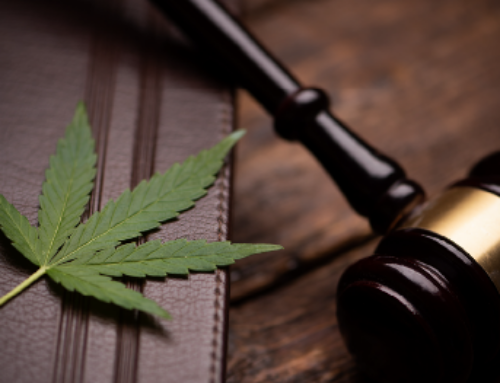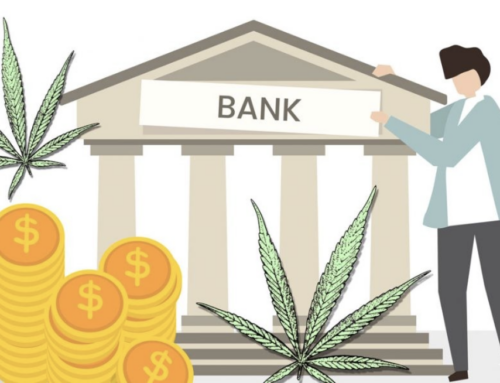As the 2018 NFL season comes to an end, we approach the holy grail of the sport, the Super Bowl. The 53rd installment of the “most expensive ticket in town” will feature the Los Angeles Rams vs. New England Patriots, on February 3, 2019 in the beautiful home of the Atlanta Falcons, Mercedes-Benz Stadium. Whether you’re tuning in for the commercials, the half-time show or the actual game, you should be in for a treat.
After the Super Bowl, the offseason begins, and for the players who have been piling up the injuries all season long, the off-season proves itself to be the time for recovery, getting the body ready to do it all over again come September. With all of those injuries come an immense amount of pain, so what’s a player to do if they don’t want to take prescription pills? What is their alternative? Can a player, looking to combat their pain, use marijuana?
As the United States moves forward with their drug laws, and specifically marijuana, we are beginning to see a change in the landscape. There are currently 10 states that have legalized the recreational use of marijuana, while 33 states have legalized the medical use of marijuana in varying forms.
The NFL and Marijuana
Every NFL team resides in a city that has legalized marijuana in some capacity at the state level. However, according to the Controlled Substance Act, marijuana remains a Schedule 1 drug and is federally illegal. Effectively, the NFL is saying that their “workers”, the players, are unable to participate in a state legal activity, no matter the reason, due to their stringent drug policies.
The NFL, through their collective bargaining agreement (“CBA”), specifically states that, “the illegal use of drugs and the abuse of prescriptions drugs, over-the-counter drugs, and alcohol is prohibited for players in the NFL. Players will be tested for drugs coinciding with the NFL Drug Panel including, cocaine, marijuana, amphetamine, opiates, opioids, PCP, MDMA and alcohol.”
All players who are under contract with an NFL Club will be tested once during the period, beginning on April 20, continuing through August 9. Based on the results, they are either free to go about their business, not being tested again until the following season or, upon a failed test, are placed into the NFL intervention program. Through the intervention program, a player who tests positive for a drug on the NFL’s banned substance list will undergo testing at a frequency so determined by either the Medical Advisor or Medical Director. If while in the intervention program a player again has a failed test, they will be subject to stage two or three of the program, whichever is applicable. A player who enters into stage two will be subject to unannounced testing at the sole discretion of the Medical Advisor. If, while in stage two, a player again tests positive for a drug on the NFL drug panel, they will enter into stage three of the treatment program and again undergo unannounced testing at the sole discretion of the Medial Advisor. While in stage two or three a player who is being tested may not be tested more than ten (10) times in a calendar month. A player who tests positive in stage three of the intervention program will banished from the NFL for a minimum period of one (1) calendar year.
A player who has tested positive will be subject to a fine or suspension dependent upon the number of positive tests. The fines come in the form of 11.76, 17.6 or 23.5 percent of the player’s annual salary (two, three, or four game checks); and suspensions can be four, six or ten games, unpaid. The strongest of disciplinary actions for repeat offenders will be either an unpaid, one-year suspension from the league or an indefinite ban subject to a formal proceeding and a necessary reinstatement into the league.
The NFL Players and Marijuana Use
Many players have faced fines or suspensions due to their use of marijuana, no matter the purpose of their consumption. In 2018, the NFL levied almost $4,000,000 in fines related to substance abuse.
Josh Gordon, a former New England Patriots wide receiver, has a well-documented substance abuse problem. Unfortunately for him, his marijuana use has occurred before a reform in the NFL drug policy, which is likely to occur when the CBA is renegotiated in 2020. Martavis Bryant, faces the same problem, consistently running into problems with marijuana and how the NFL CBA and Drug Policy treat the use of the plant. Although these players are in violation of the current NFL CBA there are many players who would benefit from a change in the policies.
Seantrel Henderson is one such player. Henderson, who played the 2018 season with the Houston Texans, was diagnosed in 2015 with Crohn’s disease. Doctors recommended that Henderson use marijuana to treat the pain as an alternative to prescription pills: Henderson said that he hoped the NFL would understand that he was a human, “I’ve got doctors telling me this is the No. 1 medicine that would help your disease,” Henderson said, “You try to tell that to the league and it seems like they didn’t care too much.” Ultimately, doctors removed roughly 2 ½ feet of Henderson’s large and small intestines. During recovery, his doctors again recommended marijuana as the source of pain relief instead of prescription pills and Henderson took their advice. Henderson notes that he thought his playing career was over due do the surgery so he used marijuana for the pain, “At the time, I thought I was done playing,” Henderson said. “I didn’t think I was coming back. At the time, I was using that for pain” Henderson was initially suspended for the first four games of the 2016 season for his marijuana use. He was then drug tested regularly in accordance with the league drug policy which he was found to be in violation of again shortly after his first suspension, resulting in a 10-game suspension. All in all, Henderson was suspended 14 games during the 2016 season and fined $523,580 for following his doctor’s recommendations.
Former Super Bowl champion quarterback Jim McMahon has been outspoken in his support for a change in the NFL’s drug policy relating to marijuana. McMahon, who played for the Chicago Bears, San Diego Chargers, Philadelphia Eagles, Arizona Cardinals and Green Bay Packers throughout his 15-year NFL career, has dealt with numerous injuries during his time in the NFL and has noted how marijuana could have helped him through all of them. He suffered numerous concussions as a player, and currently battles early onset dementia, severe headaches, depression, vision and speech problems. He was taking almost 100 Percocet a month to manage the pain he was suffering from until he began the use of medical marijuana, “They were doing more harm than good,” he said. “This medical marijuana has been a godsend. It relieves me of the pain.” McMahon is a prime example of how the rigors of the NFL can affect a person for years after they hang-up their cleats and how the use of medical marijuana can help them get through that pain.
Impact in the State of Nevada
Nevada is at the forefront of the legalization train having had medical marijuana legalized since the year 2000 and recreational marijuana since 2017. The NFL has shown quite a bit of love to the state of Nevada in recent months, specifically to the City of Las Vegas. Las Vegas is in the headlines related to their new titles as, the “Future Home the Raiders” and “Home of the 2020 NFL Draft”. The Raiders coming to Las Vegas is big news for the city. The love affair with the NHL’s Golden Knights has been a sight to see, and the Raiders are building the same type of excitement.
With the excitement comes many questions, will a player in the NFL be able to consume marijuana like a resident or tourist or, are they barred by the CBA of the NFL. After a bit of investigating and understanding of the facts mentioned above the answer at the moment is no. There is no built-in exception to the NFL’s CBA that has anything to do with marijuana consumption in legal states, or the use of marijuana as a medical alternative. The NFL simply says no. Players cannot use and they will be fined and suspended accordingly.
Through continuing education coinciding with the end of the current CBA and the negotiation of a new CBA, it is possible that we will see the NFL move away from their archaic policy, align with the progressive States, and implement a system that allows their players to consume marijuana instead of opioids. This stance could be in motion sooner than we think, as more information becomes readily available to both the NFL and the NFL Players Association (NFLPA). In regards to marijuana and the NFL’s stance, Brian McCarthy, the spokesman for NFL Commissioner Roger Goodell, recently stated “This is an area of research we are looking to develop further, along with the NFLPA…to determine whether those substances could be used as an effective and safe pain-management tool for players.”
The NFL is a huge part of the sports and entertainment world and the current and future health of their players is paramount to its continued success. Conversations discussing how to better manage the pain that this contact sport causes will bode well to seeing that success come to fruition.
CITATIONS
- NFL POLICY AND PROGRAM ON SUBSTANCES OF ABUSE, https://nflpaweb.blob.core.windows.net/media/Default/PDFs/Agents/2016SOAPolicy_v2.pdf
- NFL POLICY AND PROGRAM ON SUBSTANCES OF ABUSE, https://nflpaweb.blob.core.windows.net/media/Default/PDFs/Agents/2016SOAPolicy_v2.pdf
- SPOTRAC, https://www.spotrac.com/nfl/fines-suspensions/
- HOUSTON CHRONICLE, https://www.houstonchronicle.com/sports/texans/article/Seantrel-Henderson-gets-fresh-start-with-Texans-13132409.php
- ESPN, http://www.espn.com/nfl/story/_/id/18147079/seantrel-henderson-buffalo-bills-faces-10-game-suspension-substance-abuse-violation
- HOUSTON CHRONICLE, https://www.houstonchronicle.com/sports/texans/article/Seantrel-Henderson-gets-fresh-start-with-Texans-13132409.php
- SPOTRAC, https://www.spotrac.com/nfl/houston-texans/seantrel-henderson-14648/fines/
- DENVER POST, https://www.denverpost.com/2016/03/03/mike-ditka-knew-his-chicago-bears-players-got-high-says-jim-mcmahon/
- CHICAGO TRIBUNE, https://www.chicagotribune.com/news/local/breaking/ct-chicago-bears-jim-mcmahon-medical-marijuana-met-20160128-story.html
- BLEACHER REPORT, https://bleacherreport.com/articles/2771410-the-worlds-best-athletes-





